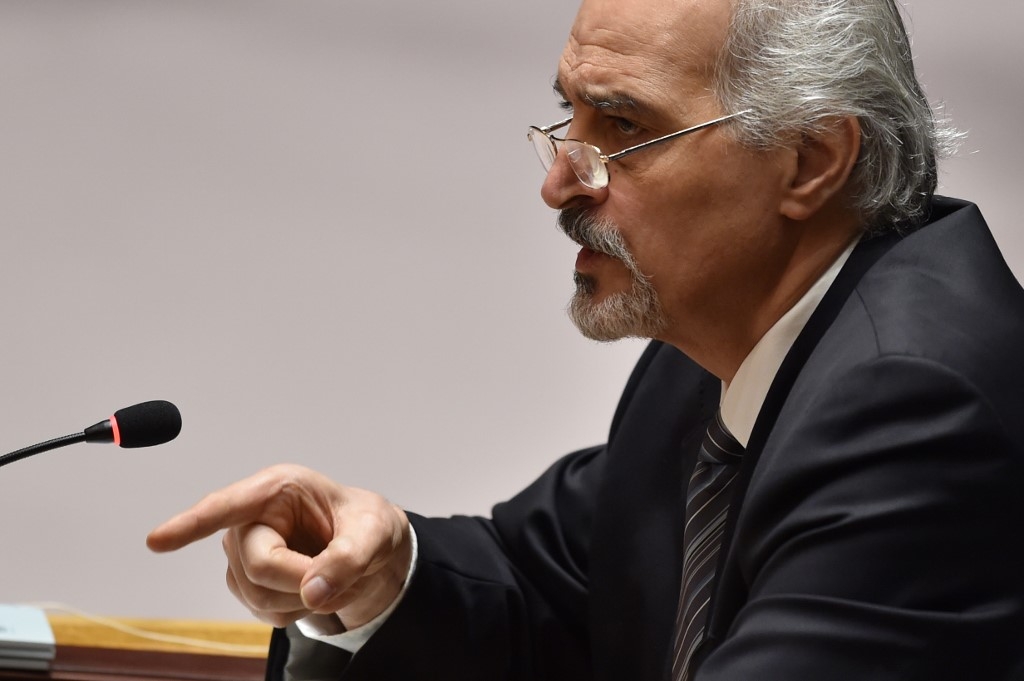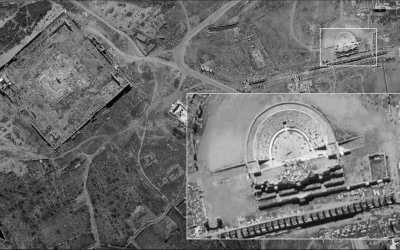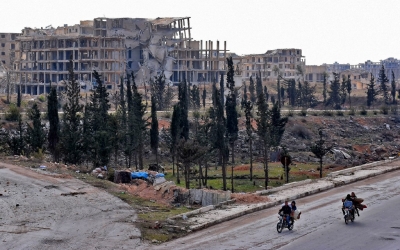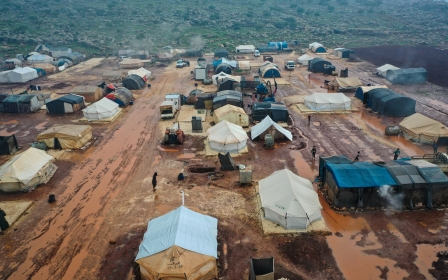Syria's UN ambassador calls on US to withdraw troops, 'stop acts of aggression'

Syria's first diplomatic message to US President Joe Biden came with a stern call for Washington to withdraw its forces and stop its "plundering" of the country's wealth.
Bashar al-Jaafari, Syrian ambassador to the United Nations, called on Biden to change US foreign policy in Syria, which is nearing 10 years of civil war sparked by a brutal crackdown on an anti-government uprising in 2011.
During a virtual session of the UN Security Council on Wednesday, Jaafari accused the United States of using the multi-sided war to steal the country's oil reserves and other natural resources.
'The new US administration must stop acts of aggression and occupation, plundering the wealth of my country, [and] withdraw its occupying forces from it'
- Bashar al-Jaafari, Syria's UN ambassador
"The American occupation forces continue to plunder Syria's wealth of oil, gas and agricultural crops, burning and destroying what it cannot steal," Jaafari said, as quoted by the state-run Syrian Arab News Agency.
During his address, he said the US should withdraw its troops from Syria - a goal of the past administration that it failed to meet.
"The new US administration must stop acts of aggression and occupation, plundering the wealth of my country, withdraw its occupying forces from it, and stop supporting separatist militias, illegal entities, and attempts to threaten Syria's sovereignty, unity and territorial integrity," Jaafari said.
Biden has experience with top-level concerns regarding the war in Syria, as it broke out when he was serving as vice-president under former US President Barack Obama.
At the time, Biden backed rebel calls for Syrian President Bashar al-Assad - accused of human rights abuses - to step down.
Many years later, international calls for Assad's removal have quietened, as the leader has managed to stay in power throughout the conflict, unlike most of his regional counterparts that faced the "Arab Spring" uprising.
US troop levels
About 900 US troops are reportedly still in Syria - though the Trump administration stopped publishing such information in 2017, making numbers difficult to verify.
When former President Donald Trump took office, there were around 500 US troops stationed in Syria to help US coalition forces, including the Kurdish-led Syrian Democratic Forces (SDF), fight the Islamic State (IS) group.
That number went up to about 2,000 during the Trump administration, before he abruptly began withdrawing forces in 2018, leading then-US Defense Secretary General Jim Mattis to resign.
Most of the remaining 900 American soldiers in the country continue to work with the Kurdish-run SDF, maintaining control over oil and gas sites. The Trump administration had sought to bring US energy companies into the SDF-controlled region, which operates without permission of the Syrian government.
Biden, sworn-in on Wednesday, has yet to make clear his strategy for Syria, nor have his choices for secretary of state or defence yet been approved by Congress.
Still, before taking office, the Biden transition team criticised his predecessor's methods.
"The Trump administration has repeatedly fallen short on US policy in Syria," the Biden campaign's foreign policy statement reads.
"Biden would recommit to standing with civil society and pro-democracy partners on the ground. He will ensure the US is leading the global coalition to defeat ISIS and use what leverage we have in the region to help shape a political settlement to give more Syrians a voice," it continues, using a different acronym for the IS group.
Reconstructing Syria
Though Biden remains critical of Assad's government, he has shifted his message to focus on "humanitarian issues" and "reconstruction".
"Biden would press all actors to pursue political solutions, protect vulnerable Syrians, facilitate the work of non-governmental organizations, and help mobilize other countries to support Syria's reconstruction," the statement said. "He would recommit the United States to lead on humanitarian issues."
Last month, the United Nations warned that the US was actually hampering Syria's ability to rebuild civilian infrastructure and deterring foreign aid groups from helping, as US sanctions had made it too risky.
The US began blacklisting Syrian individuals and entities tied to Assad and his government in June under the Caesar Act, which aims to deter "bad actors who continue to aid and finance the Assad regime's atrocities against the Syrian people while simply enriching themselves".
Still, the UN special rapporteur said the sanctions were running "roughshod over human rights, including the Syrian people's rights to housing, health, and an adequate standard of living and development".
It is unclear if the Biden administration will look to Congress to repeal the Caesar Act.
In his remarks on Thursday, Syria's Jaafari invoked the UN warning, accusing the US of ignoring the world body's findings.
"The United States and the European Union continue to impose more coercive measures on Syria and other countries, ignoring the calls of the United Nations to put an end to these measures," Jaafari said, adding that the US sanctions had hindered "the purchase of medicines and humanitarian needs and the provision of food baskets to those who deserve it".
Middle East Eye propose une couverture et une analyse indépendantes et incomparables du Moyen-Orient, de l’Afrique du Nord et d’autres régions du monde. Pour en savoir plus sur la reprise de ce contenu et les frais qui s’appliquent, veuillez remplir ce formulaire [en anglais]. Pour en savoir plus sur MEE, cliquez ici [en anglais].






